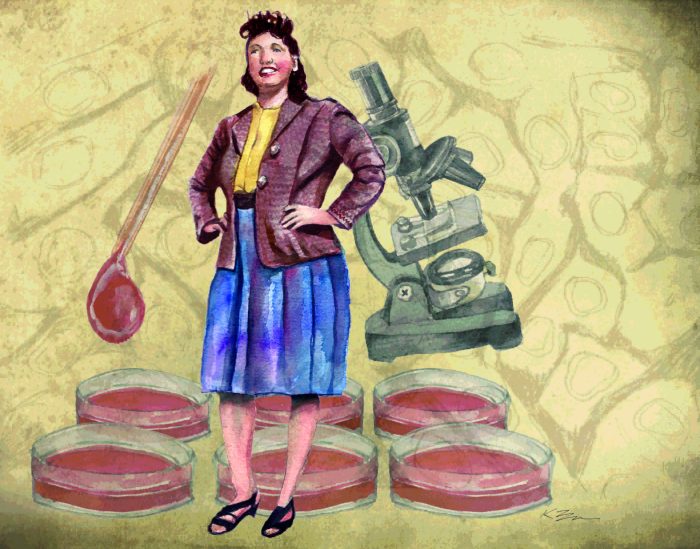Important quotes from the immortal life of henrietta lacks – Exploring the profound impact of Henrietta Lacks’ immortal cells on medical advancements and ethical dilemmas, this article delves into the complexities surrounding her legacy.
Henrietta Lacks’ story raises fundamental questions about informed consent, patient autonomy, and the commercialization of human tissue in research.
Henrietta Lacks’ Legacy
Henrietta Lacks’ cells have had a profound impact on medical research and advancements. Her HeLa cells have been used in countless studies, leading to breakthroughs in areas such as cancer research, vaccine development, and gene mapping. However, the use of her cells without her consent has raised ethical implications that continue to be debated today.
Ethical Implications
The use of Henrietta Lacks’ cells without her consent has sparked debates about informed consent and patient autonomy. Some argue that patients should have the right to control the use of their tissues, while others contend that the potential benefits of research outweigh the need for individual consent.
Ongoing Controversies
The controversies surrounding Henrietta Lacks’ legacy continue to this day. Some of the key issues include the commercialization of HeLa cells, the lack of compensation for Henrietta Lacks’ family, and the ongoing debate about the ethical implications of using human tissue in research.
Henrietta Lacks’ Personal Story
Henrietta Lacks was born in 1920 in Roanoke, Virginia. She was the daughter of sharecroppers and had a difficult childhood. In 1951, she was diagnosed with cervical cancer at Johns Hopkins Hospital. During her treatment, doctors took a sample of her cells without her knowledge or consent.
Diagnosis and Treatment
Henrietta Lacks’ diagnosis of cervical cancer was a devastating blow to her and her family. She underwent a series of treatments, including radiation and surgery, but the cancer continued to spread. In 1951, she died at the age of 31.
Personal Struggles and Triumphs
Henrietta Lacks’ life was marked by both struggles and triumphs. She faced poverty, racism, and discrimination, but she also had a strong family and community that supported her. She was a loving mother and wife, and she worked hard to provide for her family.
The HeLa Cell Line
The HeLa cell line is a type of immortal cell line that was derived from Henrietta Lacks’ cervical cancer cells. HeLa cells have been used in countless studies, leading to breakthroughs in areas such as cancer research, vaccine development, and gene mapping.
Scientific Breakthroughs
The HeLa cell line has been used in a wide range of scientific studies, including:
- Cancer research
- Vaccine development
- Gene mapping
Ethical Considerations
The use of HeLa cells has raised ethical considerations, including:
- The commercialization of HeLa cells
- The lack of compensation for Henrietta Lacks’ family
- The ongoing debate about the ethical implications of using human tissue in research
Impact on Medical Ethics: Important Quotes From The Immortal Life Of Henrietta Lacks

Henrietta Lacks’ case has had a profound impact on medical ethics. It has raised questions about informed consent, patient autonomy, and the use of human tissue in research.
Informed Consent
Informed consent is the process of providing patients with information about a medical procedure or treatment so that they can make informed decisions about their care. In Henrietta Lacks’ case, she was not given informed consent before her cells were taken.
Patient Autonomy
Patient autonomy is the right of patients to make decisions about their own medical care. Henrietta Lacks’ case has raised questions about the extent to which patients should have control over the use of their tissues.
Legal and Regulatory Frameworks
The use of human tissue in research is governed by a variety of legal and regulatory frameworks. These frameworks vary from country to country, but they all aim to protect the rights of patients and ensure that research is conducted ethically.
Literary and Cultural Representations

Henrietta Lacks’ story has been the subject of numerous literary and cultural works, including:
- The Immortal Life of Henrietta Lacks by Rebecca Skloot
- The HeLa Play by Jennifer R. Hubbard
- The Henrietta Lacks Project by Deborah Singleton
Public Awareness and Understanding
These works have helped to raise public awareness and understanding of Henrietta Lacks’ story and the ethical issues surrounding her case. They have also sparked a dialogue about the importance of informed consent and patient autonomy.
Ethical Considerations
The use of Henrietta Lacks’ story in literary and cultural works raises ethical considerations, including:
- The need to respect the privacy of Henrietta Lacks’ family
- The importance of avoiding sensationalism and exploitation
- The responsibility to ensure that Henrietta Lacks’ story is told accurately and fairly
Current Research and Future Directions

Research on Henrietta Lacks’ cells is ongoing. Scientists are studying the cells to learn more about cancer and other diseases. They are also developing new ways to use the cells to develop new treatments.
Ongoing Research, Important quotes from the immortal life of henrietta lacks
Current research on Henrietta Lacks’ cells includes:
- Studying the cells to learn more about cancer
- Developing new ways to use the cells to develop new treatments
Future Directions
Future research on Henrietta Lacks’ cells may include:
- Using the cells to develop new treatments for cancer and other diseases
- Studying the cells to learn more about the human genome
- Developing new ways to use the cells to improve human health
Question Bank
What was Henrietta Lacks’ contribution to medical research?
Her cells, known as HeLa cells, have been used extensively in research, leading to advancements in cancer treatment, vaccines, and genetic studies.
Why is Henrietta Lacks’ case ethically controversial?
Her cells were taken without her consent, raising concerns about patient rights and the exploitation of vulnerable populations in medical research.
What are the implications of Henrietta Lacks’ story for medical ethics?
Her case highlights the importance of informed consent, transparency, and respect for patient autonomy in medical research.